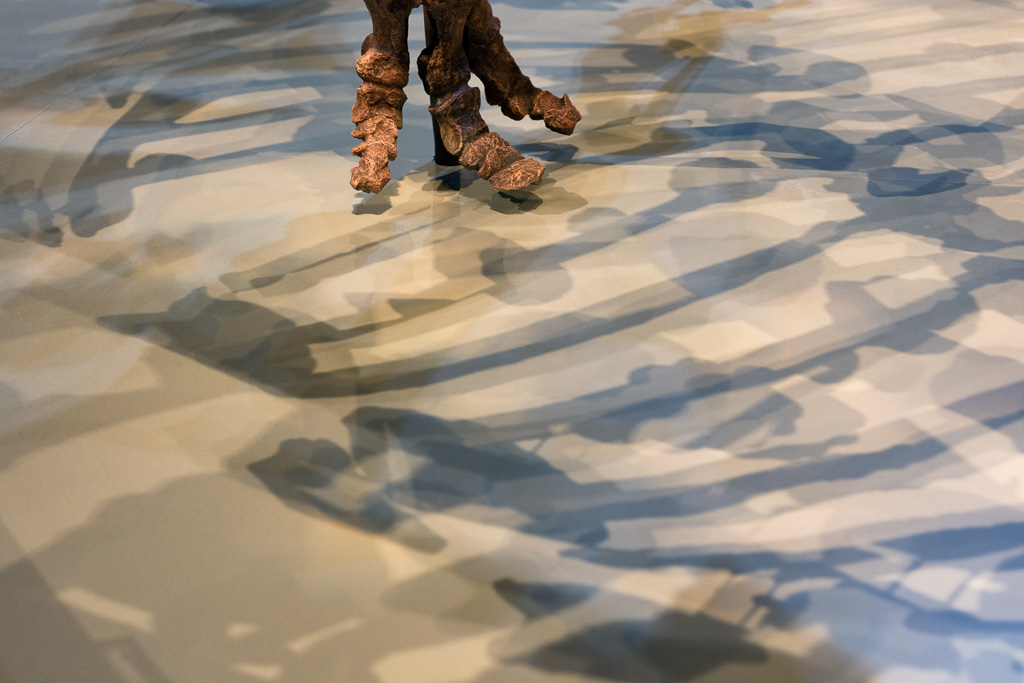There’s nothing quite like bones from the Late Cretaceous period to remind you that you’re going to be dead for a lot longer that you’re going to be alive. Compared to the millions of years you have ahead of you as a corpse, the handful of years you have as a living breathing creature pass in the blink of an eye. My wife and I didn’t set out with that in mind when we booked our tickets to a special dinosaur exhibit at the Royal Ontario Museum, but it didn’t escape our thoughts as we observed how shadows of the ancient bones played across the floor and danced with our own footsteps.
I am a rational soul and tend not to tie myself up in anxious knots over the prospect of my own death. Age may have something to do with my willingness to entertain thoughts of death. Experience, too. A brush with death does tend to clarify one’s thinking. Then there are my vaguely Buddhist habits: for a time, I was a regular in a community that engaged in traditional Tibetan meditative practice (until surprise, surprise the leader died). Holding one’s own death in mind turns out to be a paradoxically liberating thing to do.
The deliberate contemplation of death is not unique to Tibetan Buddhist practice. I’m reminded of the Capuchin Crypt beneath the Santa Maria della Concezione dei Cappuccini where tiny chapels have been formed from the bones of 3,700 monks. The purpose of the chapels is to remind worshipers that their time on earth is fleeting. A plaque declares: “What you are now we used to be; what we are now you will be…” As an aside, I can’t help but hear these words in the voice of Yoda.
Playing on the walls of the museum exhibit were animated videos featuring 3D dinosaurs. It seems that digital animation is paleontology’s answer to breathing life into Ezekial’s dry bones. The dinosaurs may be long dead but, like gods, we can bring them back to life. We watched to the end of a video then read the credits scrolling down the wall. Noting the name of the production company, we wondered why it sounded familiar, then realized that our son had just that week gotten a job working for the production company. It creates a lot of children’s programming, including a show about dinosaurs. It hired our son to do a job that didn’t exist even 10 years ago.
Children hold an ambivalent place in conversations about mortality. On the one hand, they are a source of hope insofar as they offer us an extension, both imaginatively and genetically, into the future. On the other hand, their youth reminds us of the very thing that is slipping away from us. Sometimes, they go out of their way to remind us that we are becoming superfluous. Never is our obsolescence so apparent as when they roll their eyes while explaining to us for the umpteenth time how the smart TV works. Now I understand how my parents felt and I hope they forgive me the impatience I showed while trying to set up their VCR.
